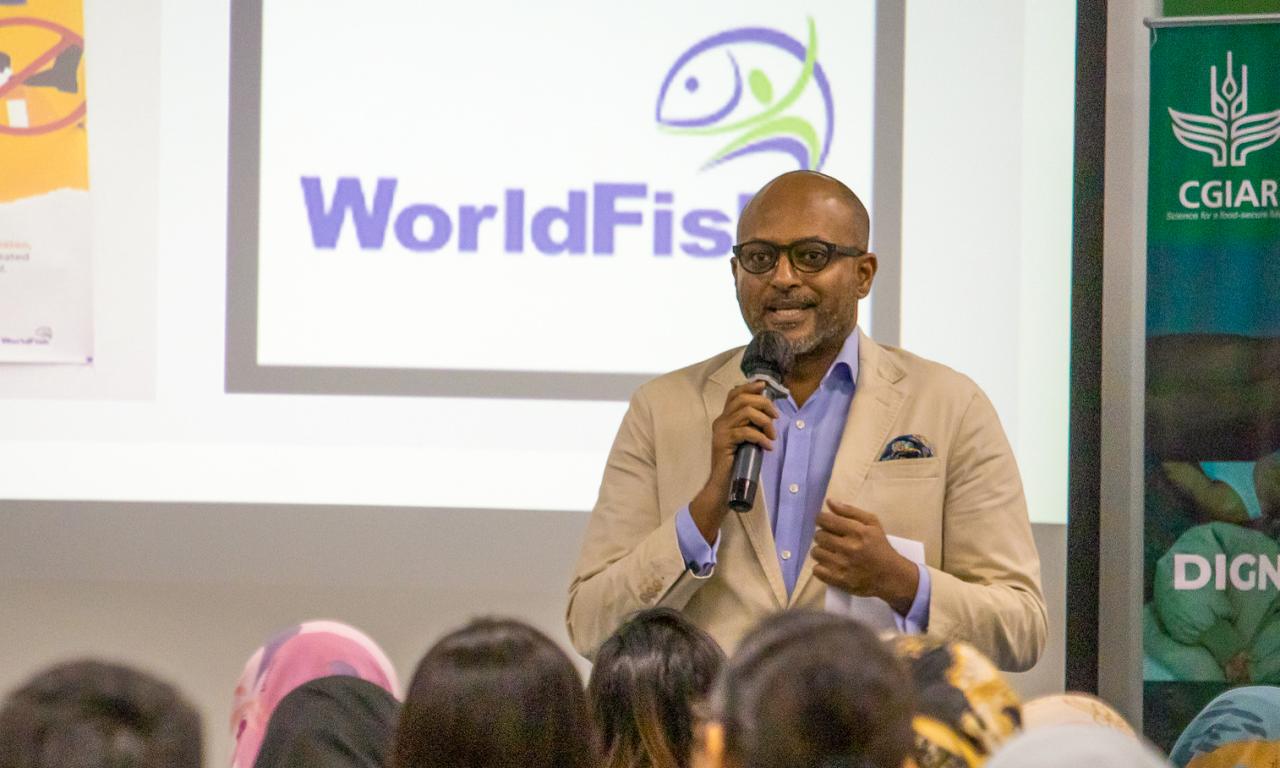
On a recent visit to Phuket where I had eagerly anticipated snorkelling and diving, instead of the vibrant underwater paradise I expected, I was confronted with a scene that resembled a graveyard – dead corals stretching as far as the eye could see.
This stark and disheartening sight highlighted the urgency of our work at WorldFish on aquatic food systems and their role on three crucial forefronts: environmental sustainability and climate resilience, social equity, and attaining food and nutrition security.
Reflecting on Global Milestones of 2023
2023 was a turning point for environmental action and sustainability. Despite being the hottest year on record, it brought food systems into the global spotlight, with 159 countries signing the Declaration on Sustainable Agriculture, Resilient Food Systems, and Climate Action. This commitment, including the Global Stocktake and Global Goal on Adaptation, provides the much-needed boost for WorldFish and other like-minded organizations to leverage increased commitments for transforming our food systems on scale.
For aquatic foods, one of the main highlights of 2023 was the surge in global acceptance of the World Trade Organisation (WTO) Agreement on Fisheries Subsidies a monumental step toward responsible fisheries management. This agreement brought us closer to its full implementation, reinforcing our commitment to sustainable and fair practices and the conservation of biodiversity.
The draft treaty to end plastic pollution, set for discussion in April this year, is another significant step towards environmental conservation, aligning with our mission to protect biodiversity.
Furthermore, the historic agreement to establish a legally binding instrument for the conservation and sustainable use of marine biological diversity in areas beyond national jurisdiction (commonly known as BBNJ) is a key milestone reached in June 2023, preserving biodiversity in the high seas.
2024 Priorities for Aquatic Food Systems
In 2024, our focus is to work more closely with our partners on the following five priorities to guide and accelerate transformation of aquatic food systems:
- Steering the blue economy for equitable, resilient, and sustainable fisheries and aquaculture. In July this year, WorldFish, in partnership with the Malaysian Department of Fisheries, is hosting the biennial global IIFET Conference in Penang, convening stakeholders of fisheries and trade from around the world to shape dialog and inform research for a blue economy that delivers on its promise for healthy people, healthy planet, and shared prosperity.
- Developing diverse partnerships to catalyze greater action on urgent aquatic food systems research needs and uptake of solutions. WorldFish’s Asia-Africa BlueTech Superhighway project (AABS), launched last year in partnership with the UK government’s COAST program, presents a notable opportunity for uptake. Leveraging South-South collaboration, AABS will adapt and scale evidence-based models and innovations to enable greater impact across Africa and Asia.
- Scaling out aquatic food systems digital innovations to inform policy for shared prosperity. Integrating and expanding WorldFish’s digital innovations in aquatic food systems will also be a focus, as data and technology such as Peskas can have a transformative impact in tackling systemic barriers faced by low-income and marginalized groups from gaining equal access.
- Enhancing climate resilience and advocating for climate justice in aquatic food systems. Special attention will be given to small-scale aquatic food production systems, enhancing their resilience to climate change, closing the gender gap and advocating for climate justice in aquatic food systems. Climate adaptation tools such as Climate Information Services if scaled out can save fish farmers millions as evidenced in a recent study.
- Developing and implementing innovative economic instruments to propel sustainable aquatic food systems. With research showing that In Africa alone, aquatic food production could soar to USD 11.9 billion by 2030 and support more than double the jobs in the same timeframe if higher investments are made, unlocking innovative and tailor made financing to the aquatic food sector is a key focus this year.
At WorldFish, we will be working closely with all stakeholders to make 2024 a turning point for the transformation of aquatic food systems, particularly in the Global South, addressing the critical aspects of biodiversity conservation, livelihoods support, gender and social inclusion while enabling sustainable inclusive food systems.
We will also be working on our long history and expertise in Asia and reimagining Island Food Systems in the Pacific and beyond, further expanding our reach in this area.
Ready to Go
Despite the challenges of a warming world, through concerted efforts and collaboration, we are on the cusp of realizing the immense opportunity in aquatic food systems to significantly improve livelihoods, ecosystems, and global food systems.
Our actions in 2024 will be crucial in bringing us closer to creating a sustainable future for healthy people, healthy planet, and shared prosperity.
To steer the course, we have recently appointed two new directors to lead our global research development agenda for aquatic food systems.
As the year begins, WorldFish is not just ready, but raring to go.
